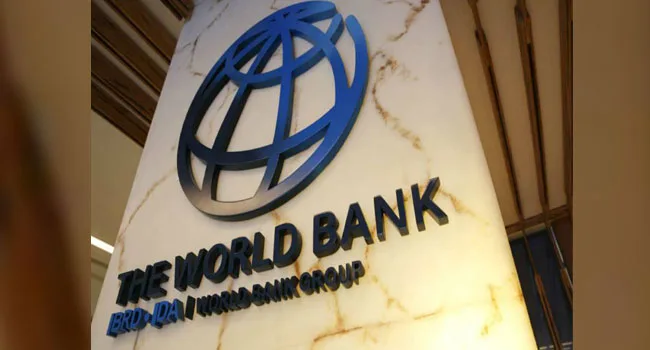The World Bank has highlighted disparities in trade costs across African countries compared to the United States attributing them to factors such as insecurity, elevated transportation costs, geographical features, and inadequate road infrastructure.
The global lender revealed this information in its Africa Pulse report titled “Addressing Inequality to Revitalize Growth and Alleviate Poverty in Africa.”
It also went on to say that market imbalances throughout Africa lead to variations in prices between imported food and non-food items, revealing a lack of cohesion among African markets.
It said the SSA region with 31 countries stands out globally as having the highest extreme poverty rate, high levels of inequality, and the weakest transmission of growth to poverty reduction.
The report highlights that although Sub-Saharan Africa has experienced stretches of growth, sustaining and expanding these periods has proven challenging leading to economic recessions.
It also said Nigeria, Ethiopia, Malawi, Sierra Leone, and Zimbabwe were the sub-Saharan African countries that recorded the fastest rise in food inflation in February this year.
This statement emerges within the context of a region grappling with soaring inflation rates, pervasive economic instability, and mounting public debts, all of which pose significant challenges and obstacles to sustainable growth and development.
How government is influencing trade
The World Bank has also acknowledged the impact of government intervention in African markets, which has resulted in the establishment of trade barriers and hindered competition and investment. The organization has observed that in such environments, major players tend to set prices higher than the market rate, thereby disadvantaging consumers, small competitors, and workers.
READ ALSO: Dr Arikana, Enabulele, Others Team Up For Ubuntu Awakening Summit
It also went on to state that;
“Global analysis of World Bank and Organisation for Economic Co-operation and Development indicators of product market regulations suggest that barriers to competition in product markets tend to be higher in African countries, due to a high degree of state involvement in markets, legal and administrative barriers to entrepreneurship, as well as barriers to trade and investment.”
Furthermore, it was mentioned that this type of market environment, which lacks competition, hampers the progress of innovation and hinders the economic development in these countries.
World Bank’s projection of Nigeria inflation
The World Bank has projected that Nigeria’s inflation rate may drop to around 15.1 percent by 2026 due to the monetary policy tightening and exchange rate stabilization policy being implemented by the apex bank. It however stated that the rate may drop to 24.8 percent. Data from the National Bureau of Statistics shows that Nigeria’s headline inflation rate rose for the 14th consecutive time in February to 31.70 percent from 29.90 percent in the previous month.
The global lender specified that the non-oil sector will see slow growth unless adequate structural reforms are put in place.
It also said that growth in Nigeria is projected at 3.3 percent in 2024 and 3.6 percent in 2025–26 as macroeconomic and fiscal reforms gradually start to yield results. A more stable macroeconomic environment, as the reforms’ initial shock dissipates, will lead to sustained but still slow growth of the non-oil economy.
In addition, the oil sector is expected to stabilize with a recovery in production and slightly lower prices. Structural reforms will be needed to foster higher growth. Average inflation will remain elevated at 24.8 percent in 2024, although it is expected to ease gradually to 15.1 percent by 2026 on the back of monetary policy tightening and exchange rate stabilization
CBN and its monetary policy
The Central Bank of Nigeria (CBN) recently implemented another increase in its monetary policy rate, raising it by 200 basis points to 24.75 percent. This move is aimed at combating the rising inflation in the country. In February, the apex bank had already raised the interest rate by 400 basis points to 22.75 percent.
Over the past 10 months, Nigeria has experienced a significant acceleration in its inflation rate. This can be attributed to various government reforms, such as the removal of petrol subsidies and the devaluation of the naira.
According to data from the National Bureau of Statistics, Nigeria’s headline inflation rate has continued to rise for the 14th consecutive time. In February, it reached 31.70 percent, up from 29.90 percent in the previous month.










